Space
Sign up for our newsletter
We summarize the week's scientific breakthroughs every Thursday.
-
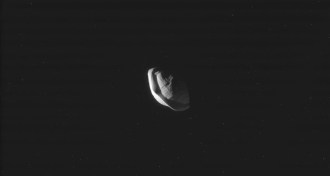 Astronomy
AstronomyIn new Cassini portraits, Saturn’s moon Pan looks like pasta
Photographs taken this week by NASA’s Cassini spacecraft provide a closer view of Saturn’s small moon Pan, which resembles ravioli.
-
 Astronomy
AstronomySaturn’s moon Pan looks like ravioli
Photographs taken this week by NASA’s Cassini spacecraft provide a closer view of Saturn’s small moon Pan, which resembles ravioli.
-
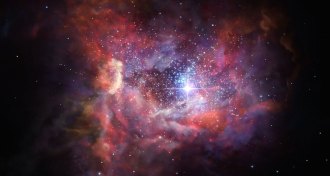 Astronomy
AstronomyAstronomers detect oldest known stardust in distant galaxy
The first stardust ever generated in the universe may have been spotted in a distant galaxy, seen as it was 600 million years after the Big Bang.
-
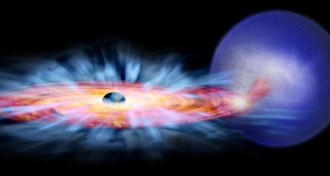 Astronomy
AstronomyMagnetism helps black holes blow off gas
The turbulent winds that swirl around black holes are probably driven by magnetic fields, scientists say.
-
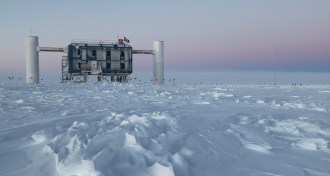 Particle Physics
Particle PhysicsRare triplet of high-energy neutrinos detected from an unknown source
The IceCube Neutrino Observatory spotted three neutrinos within 100 seconds that seem to have come from the same place in the sky.
-
 Particle Physics
Particle PhysicsTriplet of high-energy neutrinos detected from unknown source
The IceCube Neutrino Observatory spotted three neutrinos within 100 seconds that seem to have come from the same place in the sky.
-
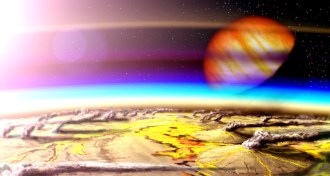 Astronomy
AstronomyHydrogen volcanoes might boost planets’ potential for life
Volcanoes that spew hydrogen could increase the number of potentially habitable planets in the universe.
-
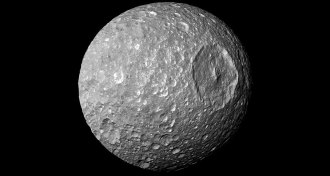 Planetary Science
Planetary ScienceSaturn’s ‘Death Star’ moon may not conceal an ocean after all
A lack of cracks on Mimas suggests that the icy moon of Saturn doesn’t conceal a subsurface ocean of liquid water.
-
 Planetary Science
Planetary ScienceSaturn’s ‘Death Star’ moon may not conceal ocean after all
A lack of cracks on Mimas suggests that the icy moon of Saturn doesn’t conceal a subsurface ocean of liquid water.
-
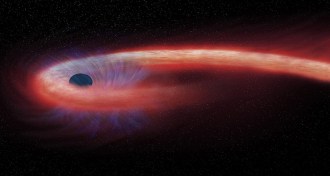 Astronomy
AstronomyBlack hole enjoys fantastically long stellar feast
A supermassive black hole about 1.8 billion light-years away has been gorging on the same star for a record-breaking decade.
-
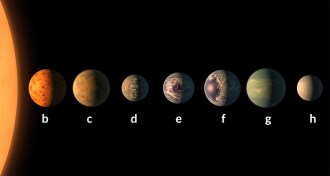 Astronomy
AstronomySeven Earth-sized planets orbit nearby supercool star
A planetary system called TRAPPIST-1 has seven Earth-sized planets, three in the habitable zone, researchers report.
-
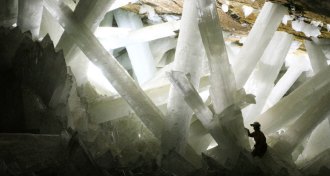 Microbes
MicrobesMicrobes survived inside giant cave crystals for up to 50,000 years
Microbes trapped in crystals in Mexico's Naica mine may represent some of the most distinct life-forms found in Earth so far.